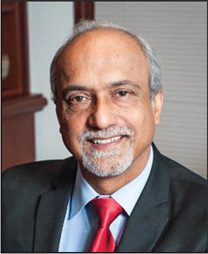DR. VIRENDER SODHI TALKS ABOUT DIETARY PROTEIN
An abundance of animal data and research has proved beyond a doubt that an excess of protein in the diet creates more cancers. Fifty to sixty grams of protein is enough for a normal, healthy 160-pound person. An excess beyond that creates many imbalances. If you plant tumors in animals and give them excessive protein, the tumors start growing. If you cut down the protein, the tumors shrink. This experiment has also been done with sugars and fats, mainly saturated fats. Exercise also shrinks the tumors. It is a complex issue; protein is not the only culprit.
I am from the mountain part of India, Himachal Pradesh. Milk is consumed there, but very little. The average cow will only milk for three to four months, giving only one to two liters of milk per day for the whole family. This is raw milk, not what we are using today. The homogenization of milk–making the fat molecules smaller and symmetrical–is a problem. The pesticides, insecticides and hormones we feed the animals are other problems.
I personally don’t use dairy at all, because I’m allergic to it; but yogurt has been shown to enhance peoples’ life span–for example, the people living in the Andes. Research indicates that yogurt helps to cut down tumors and cancers, heart disease, diabetes, etc.
In Ayurvedic medicine, milk has been considered a very sacred food. I respect that, but we should not use too much dairy. If you have access to raw milk, are not allergic to milk and do not have a kapha constitution–which may be aggravated by milk–you may be able to consume one cup of milk a day. Lassi, or yogurt, is a better option. It provides good bacteria for your gut, and protein. And it does not contain lactose, so people who are allergic to that milk sugar will have no problem with yogurt.
More than one cup is too much. Just look at the statistical data, even in India. Punjabis are very heavy milk users, and they have the highest rate of heart attacks in the world–fifty percent of the people suffer heart attacks. But I’ve never seen the mountain people of Himachal Pradesh express a pattern of dying from heart attacks. They consume a small amount of animal protein on ceremonial occasions, but their main diet is fruits, vegetables, beans, rice, nuts, seeds and what they grow; and they do a lot manual labor, which also cuts down disease processes.
Dr. Virender Sodhi, who holds an M.D. (Ayurveda) from India and an N.D. from Bastyr College of Naturopathic Medicine, USA, has been treating patients for 27 years. http:/www.ayurvedicscience.com [http:/www.ayurvedicscience.com]
DR. PANKAJ NARAM
DR. PANKAJ NARAM ABOUT DIETARY PROTEIN
My observations come from helping thousands of people with diabetes, high blood pressure, arthritis, psoriasis and other skin problems, obesity, chronic rheumatoid arthritis and terminal conditions–the final stages of cancer or HIV. They are all meat eaters. Eating animal protein is so dangerous for the body and emotions.
My students have done research. A cow at the slaughterhouse hears the sounds made by those being slaughtered, and fear hormones are created in the cow. When a person eats this cow, what is he eating? He is eating fear. After working with thousands of patients all over the world, I have observed that everyone eating meat suffers from multiple emotional upsets, such as fear, depression, anxiety and especially anger. So, if this effects the emotional body, what about the spiritual body? If you are eating meat, can you concentrate? My master says: “If you want to meditate, you have to sit in a very quiet place, in good surroundings.” If your stomach is a graveyard, is it possible to meditate? A vegetarian diet is the only real prescription for physical health, mental health, emotional health and spiritual development. It’s very, very hard for people who eat meat to become spiritual.
Let me share with you my personal experience regarding dairy products. I am 100 percent vegetarian and do not take milk or cream. My lineage is 2,500 years old. My master has never tasted milk in his life, and he lived to be 141. Every master before him was vegetarian, and none of them drank milk. They all lived up to 125 to 140 years. I take lot of mung beans and vegetables. This is my basic food.
Milk or milk products–and especially hard cheeses like swiss cheese–cannot be digested easily by our natural enzymes. Whatever you cannot digest will be transformed into ama (toxic residue), which goes into circulation. If a person is a vegetarian but is still taking lots of milk that is not digested, it moves into his or her system and causes rheumatoid arthritis. It goes into the blood and creates skin disease, psoriasis. If that ama goes into the liver, it creates problems there. As for diabetes, what happens? Too much milk, too much cheese, creates a block in the pancreas. And what about heart problems? As soon as I stop people from taking milk products, their risk of heart disease goes down by 92 percent.
An average person may need only 20 to 30 grams of protein a day. Someone who works very hard, including mental work, may require 40, 50 or even 60 grams of protein per day. And a sportsman, a gymnast, someone doing yoga postures or someone overworking his body may require 80, 90, or 100 grams of protein, but it should be from the plant kingdom. And that is possible if we plan the diet properly.
Dr. Pankaj Naram is the founder of Ayushakti, has practiced for 24 years and is a world-traveling missionary for vegetarianism and the principles of ayurveda. http:/www.ayushakti.com [http:/www.ayushakti.com]
